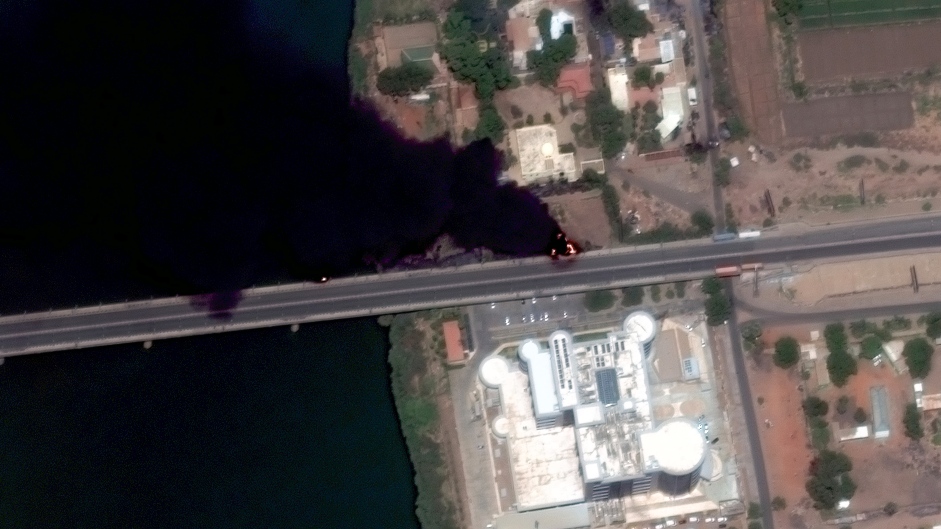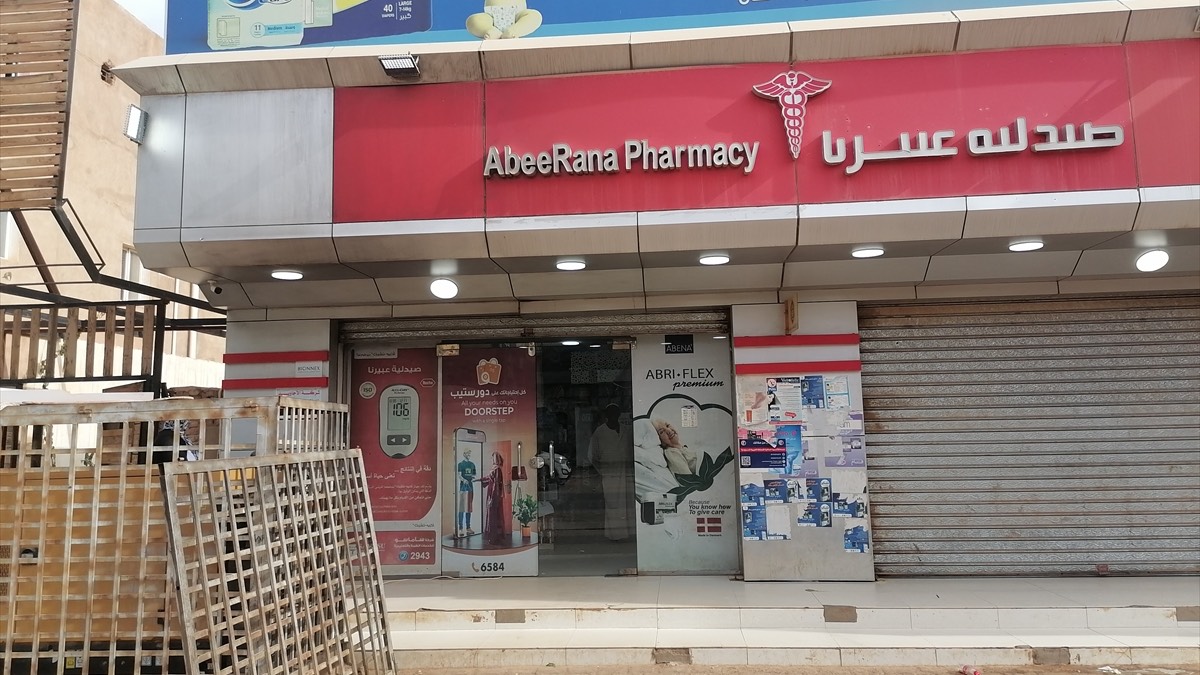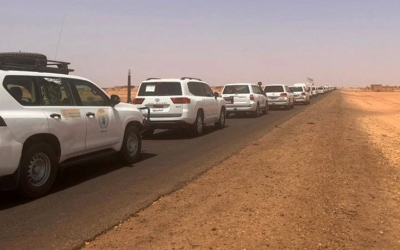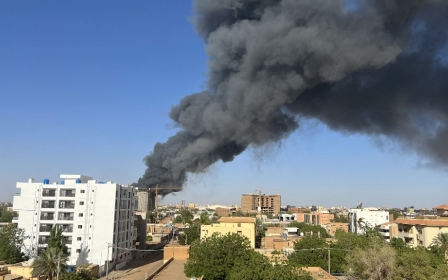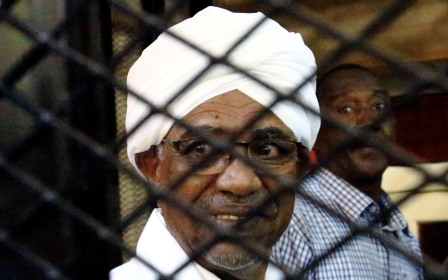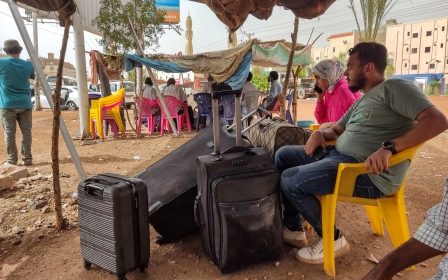Sudan's diaspora offers medical lifeline as fighting takes toll on healthcare
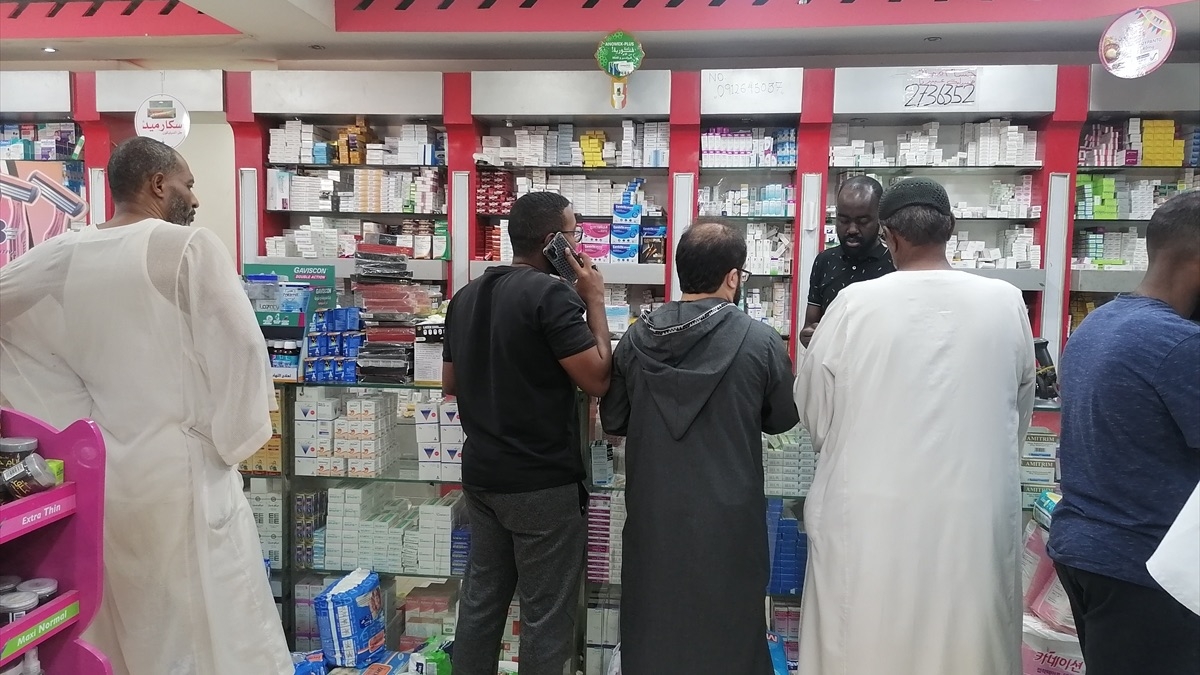
For the past two weeks, Dr Nada Fadul has barely slept.
Between the hours of 9am and 5pm, she's a professor of medicine at the University of Nebraska Medical Center. And like most university posts, it's a pretty demanding job.
But since 15 April, when she hasn't been in the classroom or marking papers or conducting research, she's spent hours in front of her laptop where she provides life-saving medical assistance to those injured or in urgent need of answers after fighting erupted in Sudan.
"My adrenaline is keeping me going," a heavy-eyed Fadul told Middle East Eye. "I'm not even thinking about what time of day it is."
Luckily though, she hasn't been alone in this endeavour.
In recent days, hundreds of Sudanese-American doctors have signed up for shifts lasting up to 12 hours where they provide medical assistance to hundreds of trapped Sudanese via video technology.
"Right now, there's a shelter-in-place situation in Sudan. People cannot travel to see physicians. They can't go to hospitals and even the simplest of medical consultations are a monumental task to actually get done," Ameir Eltom, a dentist by profession and assistant secretary of the Sudanese American Physicians Association (Sapa), told MEE.
Sudan has been gripped by intense violence after clashes broke out between the country's military, led by General Abdelfattah al-Burhan, and the Rapid Support Forces (RSF), a paramilitary force led by Mohamed Hemedti Hamdan Dagalo.
Hospitals have been bombed, ambulances hijacked, and medical workers attacked during the past 12 days of fighting.
The remote infrastructure, developed by Sapa, has seen doctors carry out between 20 to 30 telehealth appointments a day.
"People from Sudan text a [local] phone number and an automated message goes out asking them to supply certain questions - a very brief questionnaire for a very simple medical history. And once we receive that information, it is read by the physician on call and is immediately transferred to one of several WhatsApp groups of certain fields of doctors," said Eltom.
"And whatever branch that patient falls under, that case would be transferred to that specific [group] in WhatsApp and then whoever is available would pick up the case."
Several Sudanese doctors living in the US told MEE that they had originally only taken requests for non-urgent types of medical assistance, but now the trauma team had been activated too.
That endeavour, a collaboration between Sapa and other Sudanese doctors' groups in the diaspora, is another around-the-clock effort to respond to more severe, urgent, and advanced medical needs.
It's truly a disaster
Another major issue the diaspora has tried to address is the lack of medical supplies available in the country.
Almost three-quarters of all hospitals have either been shut down because they've been struck by the rival sides or because of security concerns.
Fadul and Eltom noted that with supply chains disrupted and many Sudanese weary to venture out far from their homes and go to pharmacies, civilians were running low on medical supplies.
"Because of the power outages, the insulin supply is going to be depleted very soon because insulin needs cold storage," Fadul said.
"The WHO (World Health Organisation) has a massive storage of emergency kits, but that's in the central supply headquarters, which is right in the middle of where the main fight is happening, close to the army headquarters," Fadul noted.
On Sunday, the WHO said that while trauma and surgical kits were mobilised to functional hospitals on the frontlines, the organisation was unable to deploy additional kits, with both the airports being nonoperational and the roads unsafe for travel.
Eltom added that Sapa had fundraised for and gathered $2m worth of donations and medical supplies to send to the country, but they are currently just sitting inside containers in the port of Sudan.
"It was tough before this war, and now all the supply chains and everything has been shut down. The main airport in the country is shut down so aid cannot really reach," said Eltom.
"And the roads are very hazardous so we can't even deliver the medications that we already have in the country to where they're needed."
And even prior to the current fighting, "the healthcare system itself to start with was not a strong system. It was quite weak", according to Eltom.
"It truly is a disaster. It really is."
Sudan's revolution
During the Sudanese revolution in 2018, which saw the removal of longtime ruler, Omar al-Bashir, the Sudanese diaspora's assistance for the protest movement was on full display.
Sapa set up its telehealth services as scores needed help amid attacks by security forces.
"During the revolution, [the telehealth system] saved many lives as doctors were available 24 hours a day to jump on a call and provide consultation," said Fareed Zein, co-founder of the Sudanese American Public Affairs Association (Sapaa).
Fadul, who also serves on the board of the advocacy group Sapaa, said that since the revolution she had been working with locals in and around the capital Khartoum to create community response teams (CRT).
The plan was that in times of crises, such as the Covid-19 pandemic, ordinary people would be able to address basic medical needs in their local communities.
Those trained would be able to take blood pressure readings, heart rates, and carry out other medical checkups.
"There's only so much we could do remotely. We needed to train people in there on how to intervene during these times. So we created something called the Community Medical Response Teams," said Fadul.
And now, with the fighting showing no signs of abating, Fadul is looking to reactivate these CRTs as well.
"When this hit, there was somewhat of an infrastructure of how to assist."
The diaspora always steps up
While the doctors are working on helping those in urgent need of medical assistance, others are busy advising the State Department and doing fundraisers.
"Generally, the Sudanese in the diaspora have always kind of stepped up when there's been a need in Sudan to try to help," said Fadul.
Zein said that there are around 50,000 Sudanese Americans in the DC, Maryland, and Virginia areas and a similar amount in California.
"Obviously, all of us have direct family back home who are impacted in one way or another. We're constantly on the phone with our relatives and friends, checking in with them and seeing how they're doing. And in many ways, comforting them," Zein said.
He added that the Sudanese diaspora is currently in a state of “all hands on deck”, and is trying to mobilise as many members of its community in the US as possible to advocate for both the Sudanese armed forces and the RSF to cease fighting.
If the fighting continues, none of the temporary healthcare solutions will be able to keep the country's civilian population fully safe from harm. The members of the Sudanese diaspora say the only way to achieve this is to place pressure on both sides to permanently cease the fighting.
"This is going to be a temporary, very minor solution, to a huge problem, right? I mean you have 10 million people around Khartoum, and many injuries and many fatalities," said Fadul.
But as the prospects for an end to fighting are nowhere in sight, Fadul, Eltom, and many other medical professionals in the US will continue filling in the massive gaps in Sudan’s healthcare infrastructure.
Middle East Eye propose une couverture et une analyse indépendantes et incomparables du Moyen-Orient, de l’Afrique du Nord et d’autres régions du monde. Pour en savoir plus sur la reprise de ce contenu et les frais qui s’appliquent, veuillez remplir ce formulaire [en anglais]. Pour en savoir plus sur MEE, cliquez ici [en anglais].


